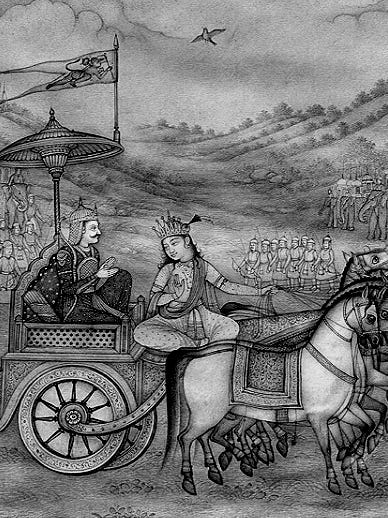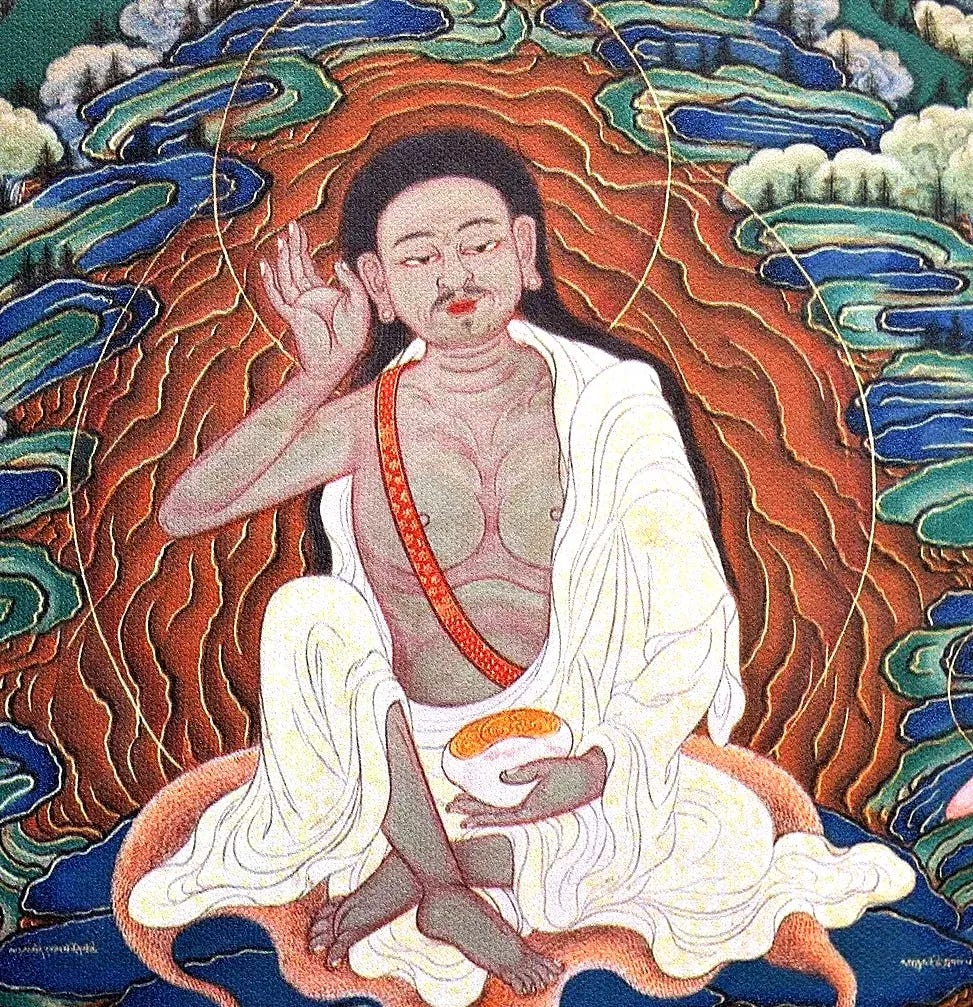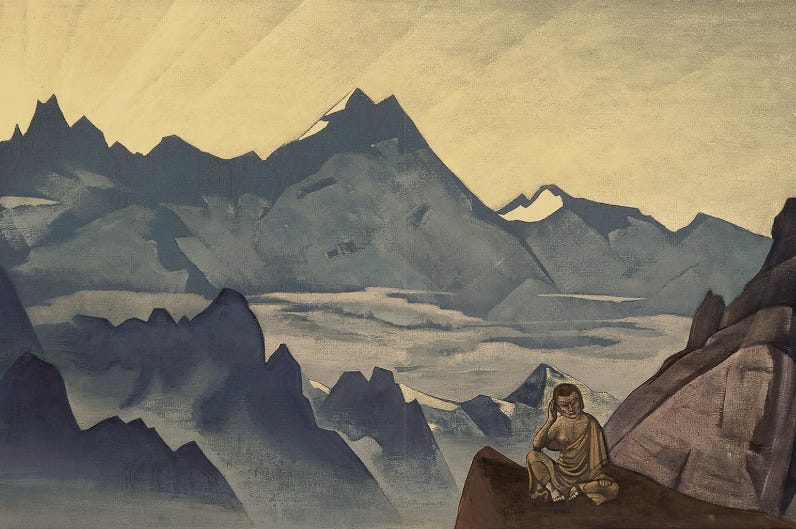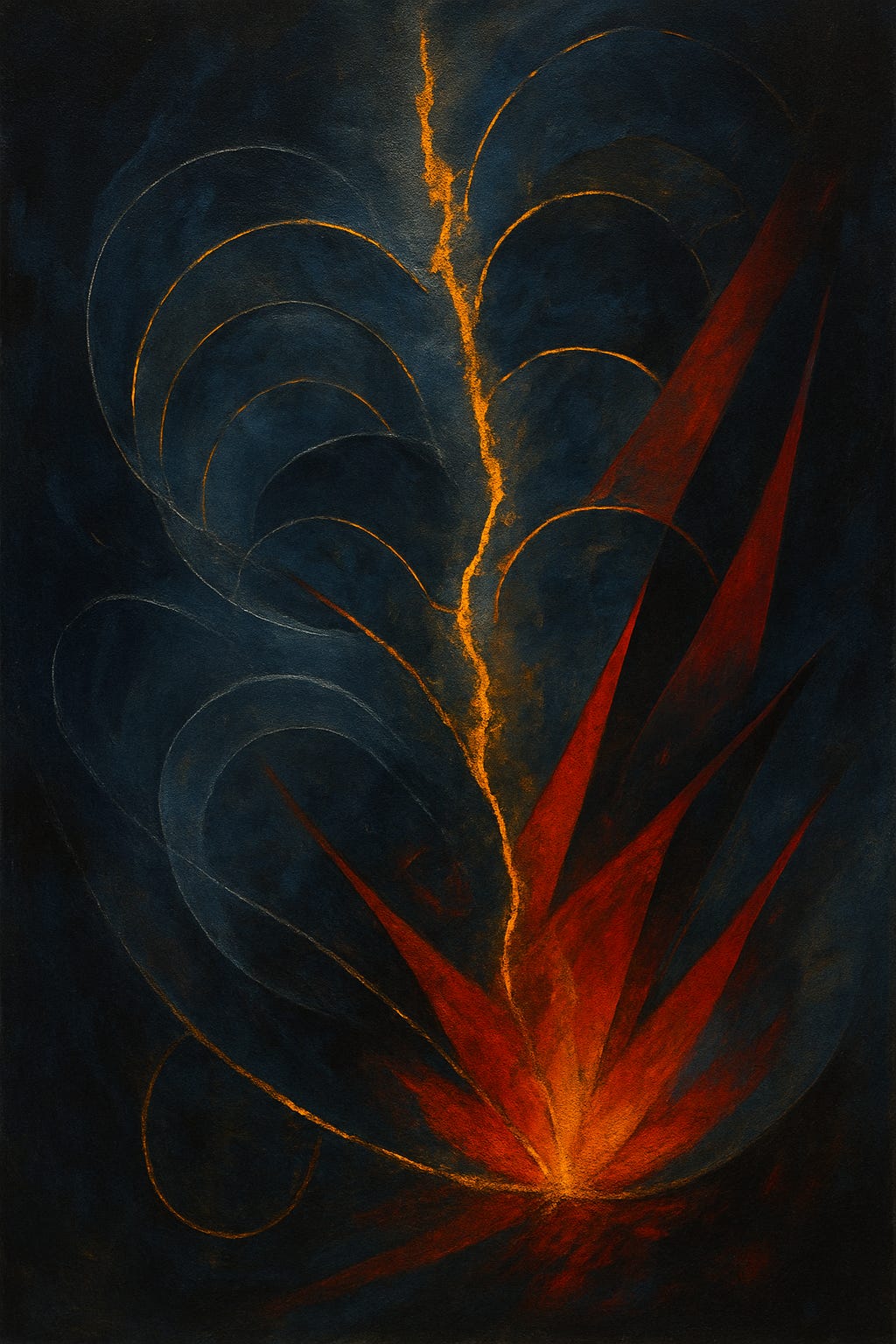Integrity
There and back again
“There, Arjuna, the son of Pandu, saw in the body of the God of gods of the whole world, standing as one, and yet divided up in many ways.”
- The Bhagava Gita
Milarepa
Beginning life amongst the hosts of towering Tibetan mountains, intimately entangled with the crowning blue sky’s, a young Milarepa begins life without such beauty in his heart. With his fathers sudden death and his family aristocratic fortune taken, Milarepa does not seek such beatific harmony of stone and sky but a ruthless revenge on the world.
Casting only shadow, our young character begins versing himself in black magic at a young age, casting dark spells and performing ruinous rituals that reflect their maker. The consequence of casting such lifeless forms unto the world is that they take lives with them, and it was through such black magic that Milarepa killed many. Creating vicious winds which tore down homes, or creating unwavering storms that would ruin crop, the townsfolk had suspected a sinister genesis to such events and looked for their creator.
Suddenly seeing the destruction he had caused and fearing the townsfolk would find him in those towering Tibetan mountains, Milarepa fled back to his teacher of black magic, who saw the anger which motivated the use of Milarepa’s power and eventually sent him off to find a new way for himself, a better way.
There…
As this forum has discussed in its beginning, any journey of growth and change must begin with not only a familiarity but so too a nexus from which the hero is forced to leave such familiarity in search of something more, to reintegrate and reorient a sudden addition or subtraction of events.
The familiar is important whence discussing the grail found on the other side of the adventure because both are known. When I say this, I mean to say that both are stable, conscious, and defined by the knower.
The familiar is the stable, conscious, and defined perspective on things prior to an upsetting of that perspective, the integrity on the other side is the new found stable conscious, and defined perspective found once one has journeyed through the ambiguous chaos of the liminal, and found the numinous.

It is in this upsetting of the death and destruction caused and done unto Milarepa which begins his journey for something more, we have already seen the destruction of the familiar, and the coinciding presence of the liminal, but the numinous is still to be found.
It was only after much searching and wondering within himself and throughout the world, that Milarepa found his new teacher and elder, Marpa. Having studied the yoga’s of India for many years, and becoming a master of the practices of Mahamudra (the great seal), Marpa now became the pool of wisdom which lead Milarepa into the ancient Buddhist tradition.
This teaching was not tranquil however, as it often involved much manual labor and unshaken obedience on the part of Milarepa. It was many years of trial and failure that Milarepa endured with frequent impatience and bitterness, until Marpa began to teach Milarepa of meditative practices he had mastered. In complete devotion and attention, Milarepa wondered once again to a far reaching cave in the mountains he once cast dark spells on those below, now solely focused on the Mahamudra which awaits him from above.

In his solitude, Milarepa wrote many songs and poems, stemming from his gradual blossoming, becoming a skillful meditator and practitioner of the ancient tradition passed down to him through Marpa.
It is in the midst of one of these meditations, which were often intense and tenebrous do to the darkness of his past, Milarepa found great convolution within himself. A wave of intensity and struggle sieged him in his efforts to remain in a mindful state. It was only through a violent crescendo of this distortion swirling around him that there was sudden utter resolve as he cried in great song:
“All the evils of my past have become the firewood for my realization.”
… and back again
Within this realization of Milarepa’s, there of course is a very numinous flavor that the reader receives, but so too is there something more than solely a divine encounter.
In our western metaphor for how one falls through time, it is often depicted that we are flying face first into the unknown, this was counter intuitive to the ancient Greeks, who conversely believed moreover, that we are falling backward into the unknown, facing the past we have lived.
One can’t help but feel this same feeling of retrospection and reflection on his darker years as he utters that line. This is integrity found at the resolve of ones journey; the spirited integration of ones past, informing ones present, projecting ones future. It is worth mentioning once again that this experience is known, and is stable, conscious, and defined by way of ones journey through the liminal, as well as encountering the numinous.
Often in folklore and myth, the hero at this stage returns home, they come back again. However, they are not the same individual that crossed beyond the boarder of the familiar in the launch into the unknown; they are wholly changed.
Let us not mistake ourselves and think that the individual who still resided within the familiar is gone, they are still very much alive, as when we change, we do not metamorphosize entirely but blossom into something more, retaining what has been yet fusing it with what is now, and that is to come.



